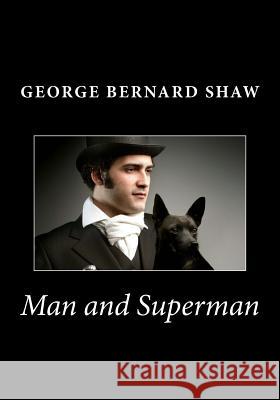Man and Superman » książka
Man and Superman
ISBN-13: 9781494864484 / Angielski / Miękka / 2014 / 158 str.
Man and Superman
ISBN-13: 9781494864484 / Angielski / Miękka / 2014 / 158 str.
(netto: 43,83 VAT: 5%)
Najniższa cena z 30 dni: 46,02
ok. 16-18 dni roboczych
Bez gwarancji dostawy przed świętami
Darmowa dostawa!
Man and Superman was the first drama to be broadcast on the BBC's Third Programme on October 1st, 1946. "A comedy and a philosophy," Man and Superman is based on the Don Juan theme and, using all the elements from Mozart's Don Giovanni, Shaw reordered them so that Don Juan becomes the quarry instead of the huntsman. George Bernard Shaw was called, with good reason, the "English Nietzsche." Though Nietzsche was an aristocrat and Shaw a socialist, both cherished the dream of the superman and looked forward to the day when he would be realised. Both, however, were characterised by their mordant wit and intellectual cynicism, in which "Man and Superman" abounds. Shaw manages to compress a number of disparate themes into a relatively taut dramatic format, even throwing in a scene in which Don Juan, the Devil and a gang of anarchist brigands make an appearance. The central event of the plot involves the wealthy Tanner, a member of the "Idle Rich Class" making himself subservient to the Life Force and seeking the perfect woman to marry, who would guarantee him a very special offspring, his ideal, the superman himself. Though Shaw was not known to have read the works of Bergson at that time, nor to have been conversant with his vitalist doctrine of the Life Force, his use of the Life Force motif and the philosophical underpinnings of the play attest to a pure Bergsonism. The most delightful part, however, is the "Revolutionist's Handbook" at the end, which contains Shaw's most scandalous anti-Establishment jibes. For instance, "Do not do unto others as you would them do unto you. They might not have the same taste."
Zawartość książki może nie spełniać oczekiwań – reklamacje nie obejmują treści, która mogła nie być redakcyjnie ani merytorycznie opracowana.











